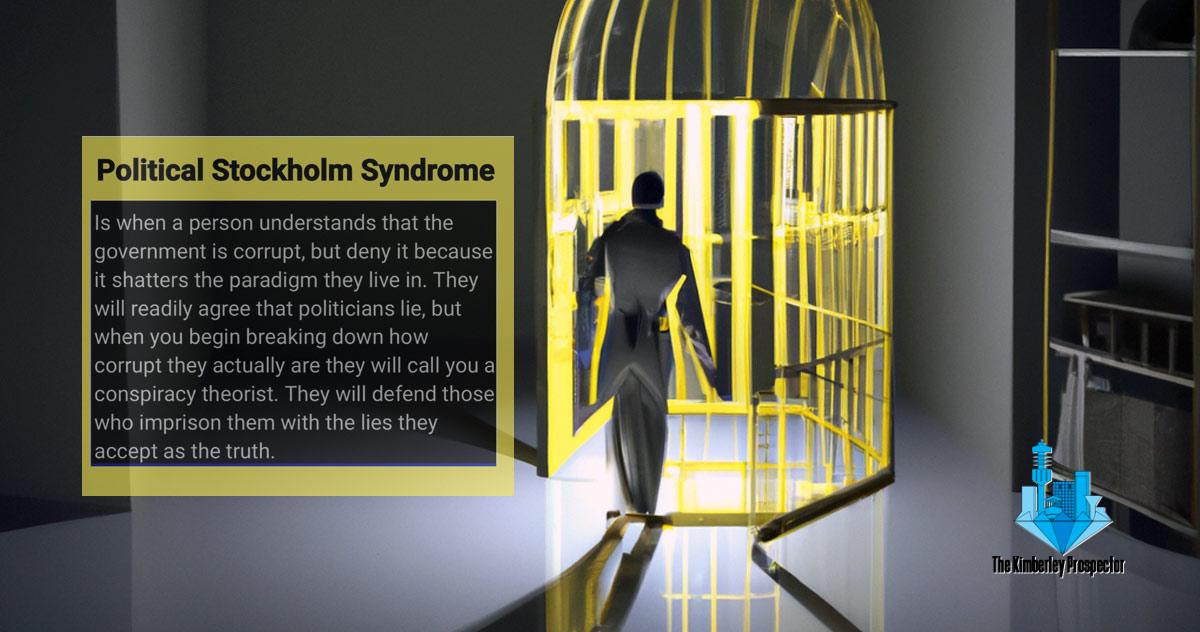Breaking Free From the Shackles of Political Stockholm Syndrome: Examining Government Service Delivery
The concept of Stockholm Syndrome is a psychological phenomenon in which hostages develop an emotional bond with their captors. Political Stockholm Syndrome is an apt analogy to the current state of affairs in South Africa, where citizens have become so accustomed to poor service delivery from the government and local municipalities that they have accepted it and moved on with their lives. This is despite the fact that the country is suffering from a long list of issues that can be attributed to widespread corruption, a failing ruling government, and a lack of accountability.
South Africa is facing a high rate of unemployment, high levels of poverty, high levels of inequality, poor educational outcomes, poor infrastructure and lack of access to essential services, a high rate of HIV/AIDS infection, high levels of crime, a poor healthcare system, poor public transportation, poor sanitation, high levels of corruption, poor housing conditions, poor environmental conditions, high levels of xenophobia and racism, and high levels of gender-based violence. These issues are not a result of apartheid, the legacy of which has been greatly exaggerated by those in power, but of the corruption and decline of the ruling government that has been in power since the end of apartheid.
The consequences of these issues are far-reaching and have a devastating impact on the quality of life of South Africans. The high rate of unemployment means that many citizens are unable to find meaningful work, leading to greater levels of poverty and inequality. Poor educational outcomes mean that fewer people are able to enter higher education or find jobs in their chosen fields. Poor infrastructure and lack of access to basic services mean that many citizens are unable to access clean water, electricity, or even basic healthcare. The high rate of HIV/AIDS infection has become a national crisis, with an estimated 11 million South Africans infected. High levels of crime mean that citizens are constantly living in fear of becoming a victim of a crime. A poor healthcare system means that healthcare is inaccessible and of poor quality. Poor public transportation means that many citizens are unable to access employment opportunities. Poor sanitation means that citizens are living in unhealthy and unclean conditions. High levels of corruption mean that public funds are often misused or taken for personal gain. Poor housing conditions mean many citizens live in overcrowded and substandard homes. Poor environmental conditions mean that air and water pollution is rampant, leading to a variety of health issues. High levels of xenophobia and racism have led to an increase in hate crimes and discrimination. High levels of gender-based violence mean that women, especially, are living in fear of becoming a victim of violence.
It is clear that the current state of service delivery from the South African government and local municipalities is unacceptable.
It is time for South Africans to break this cycle of acceptance and demand better from their government and local municipalities. It is only through sustained pressure from citizens that meaningful change will be made and South Africa will be able to start making progress towards addressing the long list of issues faced by its citizens.
Wake up, a new tomorrow is waiting for you!
South Africa faces many complex and interconnected challenges that require peaceful and effective means of addressing them. The most effective way for South Africans to peacefully demand change from the government is through civil society organizations. These organizations should take a collaborative approach and form coalitions to advocate for change on major issues such as high rates of unemployment, high levels of poverty, high levels of inequality, poor educational outcomes, poor infrastructure and lack of access to basic services, high rate of HIV/AIDS infection, high levels of crime, poor healthcare system, poor public transportation, poor sanitation, high levels of corruption, poor housing conditions, poor environmental conditions, high levels of xenophobia and racism, and high levels of gender-based violence. The organizations should coordinate their advocacy efforts, lobby the government, and engage in public protests and strikes to generate public support and pressure the government to take action. Additionally, they should ensure that the solutions they are proposing are realistic, sustainable, and beneficial to all South Africans. In this way, South Africans can peacefully demand change from the government to address the major issues the country is facing.
SCOTLANDs POLITICAL Political Stockholm Syndrome:
— ???????????????????????????????????????? (@JustAVoter100) December 29, 2021
This is now our biggest threat.
Not Covid.
The SNPs mis-management of the pandemic by controlling the population through fear, purely for political gain.#ResignSturgeon pic.twitter.com/A5Xwt7RPBc
